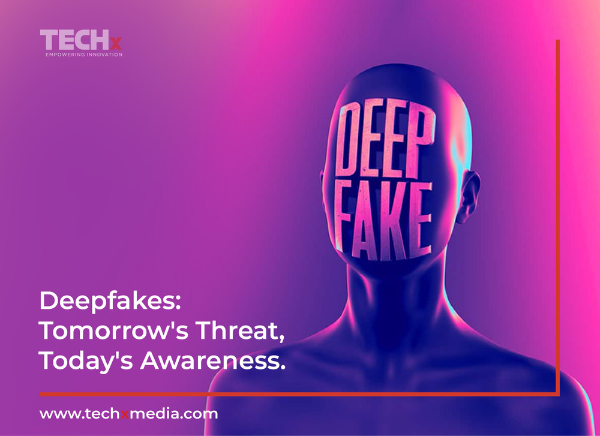
As artificial intelligence (AI) and machine learning technologies gain widespread adoption, security experts are warning of the escalating threat posed by deepfakes. These sophisticated manipulations, which encompass realistic human-like speech and convincing photo and video replicas, are becoming increasingly accessible on the dark web, according to Kaspersky’s research.
The availability of deepfake creation tools on illicit online platforms raises concerns about potential misuse, including fraud, blackmail, and data theft. Shockingly, Kaspersky experts estimate that a mere $300 can buy one minute of a deepfake video. This affordability amplifies the risk to both individuals and organizations.
Moreover, there’s a troubling discrepancy in digital literacy, as highlighted by Kaspersky’s Business Digitization Survey. While over half of employees in the Middle East, Turkey, and Africa region claim they can differentiate between real images and AI-generated ones, only a quarter could actually do so in a test scenario. This knowledge gap leaves organizations vulnerable to social engineering attacks, where manipulated media could be exploited to deceive employees into facilitating financial crimes.
The potential ramifications of deepfakes are profound. Cybercriminals can fabricate videos of executives authorizing fraudulent transactions, posing significant financial threats to companies. Additionally, individuals can be targeted for extortion or impersonation using manipulated content.
Vladislav Tushkanov, Lead Data Scientist at Kaspersky, emphasizes the urgency of addressing this emerging threat. He warns that while the technology for high-quality deepfakes may not be widespread yet, the danger lies in their potential to deceive in real-time, as demonstrated by recent incidents.
To mitigate the risks posed by deepfakes, Kaspersky recommends several proactive measures:
– Vigilance against suspicious calls, paying attention to anomalies in voice quality and speech patterns.
– Awareness of key indicators of deepfake videos, such as unnatural movements and inconsistencies in lighting.
– Exercising caution and verifying information before making decisions or sharing sensitive details.
– Regularly updating cybersecurity practices and leveraging solutions like Kaspersky Threat Intelligence to stay informed about evolving threats.
– Educating employees about deepfakes and implementing ongoing awareness programs to bolster defenses against manipulation tactics.
As the proliferation of deepfake technology continues, preemptive action is crucial to safeguarding against its potentially devastating consequences.
